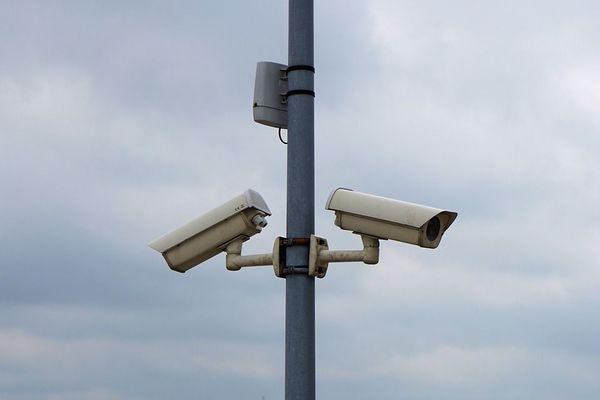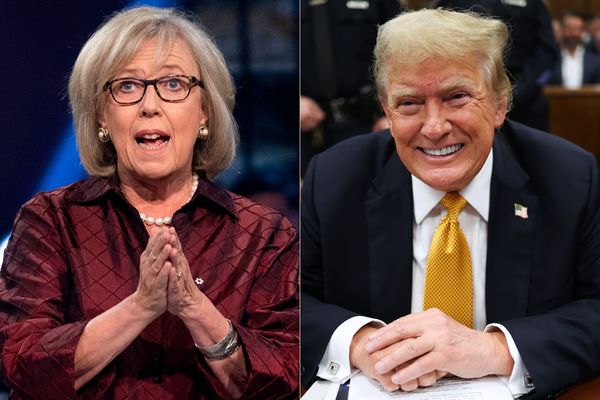The U.S. Food and Drug Administration approved the Pfizer-BioNTech coronavirus vaccine on Monday for people 16 and older, making it the first of three COVID-19 shots available in the U.S. to be upgraded from an emergency use authorization (EUA) to full approval.
For children aged 12 to 15, the vaccine can still be administered under an EUA, as well as third doses for certain immunocompromised individuals. Both the Johnson & Johnson and Moderna COVID-19 vaccines still await FDA approval but remain available for adults under an EUA.
The upgrade means the Pfizer vaccine will still be available to the public even after the “current public health emergency” the original authorization was based on comes to an end. The approval also means employers, local leaders and other businesses may be more willing or likely to mandate COVID-19 vaccination.
For example, the U.S. military said it will mandate vaccines as soon as they became FDA approved, or once the president approved the request, whichever came first. And several colleges and universities have already mandated them for staff and students who wish to return to campus.
However, experts say the approval’s largest impact may be on those who have remained hesitant about the vaccine’s safety, many of whom call them “experimental” shots.
A recent poll by the Kaiser Family Foundation found that 31% of unvaccinated Americans said they would be more likely to get their shots if the FDA officially approved them.
“While this and other vaccines have met the FDA’s rigorous, scientific standards for emergency use authorization, as the first FDA-approved COVID-19 vaccine, the public can be very confident that this vaccine meets the high standards for safety, effectiveness, and manufacturing quality the FDA requires of an approved product,” Acting FDA Commissioner Dr. Janet Woodcock said in a statement. “While millions of people have already safely received COVID-19 vaccines, we recognize that for some, the FDA approval of a vaccine may now instill additional confidence to get vaccinated.”
So, what does the FDA’s approval mean for Americans? And how does it differ from the emergency use authorization?
Here’s everything you need to know.
Does this mean you can get a booster shot now?
White House health officials announced last week they are recommending booster COVID-19 shots for all adult Americans to maximize and prolong protection against severe disease and death.
They are currently recommending that only adults get a booster shot. They said they are leaving it up to the FDA to decide if it’s safe for children between 12 and 17 years old.
The recommendation was based on two main pieces of evidence from the U.S. and around the world: vaccine protection against coronavirus infections decreases over time and vaccine effectiveness generally decreases when put up against the highly contagious delta variant, which is driving infections across the U.S.
But the FDA’s approval does not mean you can rush to your local pharmacy and get a third dose now, officials said. The booster plan is still pending authorization from a special committee within the FDA and a recommendation from the Centers for Disease Control and Prevention.
People could get booster shots beginning the week of Sept. 20, at least eight months after receipt of their second dose.
Only those who received two doses of the Pfizer-BioNTech or Moderna coronavirus vaccines will be eligible for booster shots.
Experts anticipate people who received the one-dose Johnson & Johnson vaccine will also need booster shots, but more data is needed before experts can recommend them. That’s because the J&J shots were not administered in people until March, months after Pfizer and Moderna vaccines first rolled out.
The nation’s booster shot plan will prioritize the most vulnerable, including health care workers and nursing home residents.
What is Comirnaty? Pfizer vaccine gets a new name
In addition to approval, the Pfizer COVID-19 vaccine gets a new brand name.
Now, the shot will be marketed as “Comirnaty (koe-mir’-na-tee),” according to the FDA.
“The name is coined from Covid-19 immunity, and then embeds the mRNA in the middle, which is the platform technology, and as a whole the name is meant to evoke the word community,” Scott Piergrossi, president of operations and communications of the Brand Institute, a branding agency that specializes in the development of brand names and identities, told Fierce Pharma in December.
What did the review process look like for FDA approval versus EUA?
For the early clinical trials last year, more than 43,000 people volunteered to receive the Pfizer vaccine so scientists can test its safety and efficacy. Half of the group got the shot while the other half received a placebo.
The FDA requires at least two months of data from at least half of the clinical trial participants before granting an EUA. The shots proved to be safe and effective at preventing severe illness and death from the coronavirus. Most serious vaccine-related side effects occur right after vaccination, experts say.
The FDA authorized an EUA for the Pfizer vaccine on Dec. 11, 2020.
In early May, the company submitted data to the FDA for full approval. This time, they were required to send at least six months worth of data. The FDA reviewed the data from about 40,000 people, half of whom received the shot and the other half a placebo.
The analysis found that the Pfizer vaccine was 91% effective in preventing people from developing COVID-19 once infected. More than half of the participants were followed for at least four months after their second dose, while about 12,000 were followed for at least six months.
The standard approval process usually takes about 10 months, but Pfizer and BioNTech requested a “fast track,” meaning approval came earlier than traditional expectations.
When will the Moderna COVID-19 vaccine be approved?
Moderna submitted data for full approval in June, a month after Pfizer and BioNTech.
The company also requested the FDA fast track its review of data, but it’s unclear what stage the process is in.
People aged 18 and older can continue to receive the Moderna vaccine because it is still under an EUA.
Does safety monitoring continue even after FDA approval?
Yes. The FDA will continue to monitor any safety concerns among the vaccinated that pop up along the way.
The administration is also requiring the Pfizer and BioNTech companies to “conduct postmarketing studies” to assess the low risks of myocarditis and pericarditis — inflammation of heart muscles — following vaccination.
Officials determined the submitted data showed “increased risks, particularly within the seven days following the second dose,” for the conditions among males under 40 years old. The highest risk was found in males between the ages of 12 and 17.
“Available data from short-term follow-up suggest that most individuals have had resolution of symptoms,” the FDA said. “However, some individuals required intensive care support. Information is not yet available about potential long-term health outcomes.”
The vaccine developers have also committed to additional safety studies for pregnant people.
Does FDA approval mean vaccines will be available to all kids now?
No. Research examining children younger than 12 years old who received the Pfizer vaccine is still underway.
In March, the companies administered the first shots in healthy children aged 6 months to 11 years to determine what doses are safe and effective for them.
“Does getting full approval for an adult vaccine, does that matter in terms of speeding up the process for approval for the childhood vaccines? I think the answer to that question is probably no,” Dr. Paul Offit, a member of the FDA’s vaccine advisory committee and director of the Vaccine Education Center at the Children’s Hospital of Philadelphia, told CNN.







